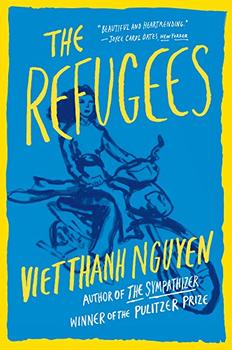Summary | Excerpt | Reading Guide | Reviews | Beyond the book | Read-Alikes | Genres & Themes | Author Bio

Rin Drummond's nicknames include "Pit Bull" and "Dragon." She's a tough-as-nails Iraq War veteran, full of shrapnel wounds and bitterness at the loss of her husband (and fellow soldier) Jay. Back home in the Catskills region of New York, she raises their nine-year-old daughter Juney, who is blind, along with a large collection of animals, including chickens, cats, dogs, and three wolves – even though it's illegal to keep wolves as pets in New York State (see 'Beyond the Book').
It upsets Rin when Juney becomes friends with Tariq Jassim, an Iraqi refugee boy with a prosthetic leg. With her "clusterbomb of paranoias," Rin can't seem to suppress her suspicion about Tariq and his mother, Naema, who works as a doctor at the local Veterans Affairs-affiliated pediatric clinic. Prejudice against people with Arab backgrounds is one of the driving forces behind Helen Benedict's compelling seventh novel, Wolf Season. Another is locals' mounting concerns about the danger Rin's wolves might pose, and a third is an approaching hurricane that causes extensive property damage and injures one of the central characters.
Benedict has written about the Iraq War before, in both fiction and nonfiction, and conducted interviews with Iraqis, soldiers, and interpreters as part of her research. Her readers may remember having met Naema in the novel Sand Queen, in which she was a medical student in Iraq. Here flashbacks fill in the backstory of how Naema and Tariq ended up in the United States in 2010: Naema's husband Khalil, an interpreter working for the Americans, was killed in the line of duty. Indeed, absent fathers run all through the novel: Tariq's friend Flanner Wycombe struggles to cope with his marine father Todd's long service periods in Afghanistan – though for his mother, Beth, having Todd back home elicits mixed emotions.
The main theme here is "how very long the reach of war turns out to be," as Naema puts it. Those who most want to avoid or forget about war can't seem to stop encountering it in their daily life, through PTSD-type anxiety (Rin) or flashbacks to violent events from the past (Naema). War is even pervasive in the computer games Flanner plays and and the television shows Beth skips past. Benedict makes it clear just how difficult it is for veterans and war refugees to find peace in a culture that so enshrines violence. She doesn't turn this into a one-sided political argument, though. While there is some mild mockery of "President Shrub" and his "Shock and Awe" campaign, the novel is not noticeably partisan.
I was relieved to see that Benedict's child characters are just as convincing and well drawn as the adults; sometimes children in fiction can seem too precocious or speak in a stilted manner. Overall, the characterization is very successful, with the exception of Todd, who comes across as a stereotypically crass and macho soldier. I found a few of the coincidental connections between characters a bit hard to believe, and thought the book might have packed more punch if the collisions of characters and subplots had been allowed to get even darker at the end. However, the novel is a powerful picture of the limits of compassion and the knee-jerk nature of emotions: prejudice directed against immigrants and the fear of wolves. Can we ever move past simple loyalty to our own "pack" and learn to empathize with those who are different from us? Benedict doesn't offer simple solutions; instead, her book is a raw howl for justice and understanding.
![]() This review
first ran in the January 3, 2018
issue of BookBrowse Recommends.
This review
first ran in the January 3, 2018
issue of BookBrowse Recommends.

If you liked Wolf Season, try these:

by Viet Thanh Nguyen
Published 2018
Viet Thanh Nguyen's The Sympathizer was one of the most widely and highly praised novels of 2015. Nguyen's next fiction book, The Refugees, is a collection of perfectly formed stories written over a period of twenty years, exploring questions of immigration, identity, love, and family.

by Christian Kiefer
Published 2016
For fans of Denis Johnson and Peter Matthiessen, a literary thriller from one of the most exciting new voices in American fiction.
Your guide toexceptional books
BookBrowse seeks out and recommends the best in contemporary fiction and nonfiction—books that not only engage and entertain but also deepen our understanding of ourselves and the world around us.